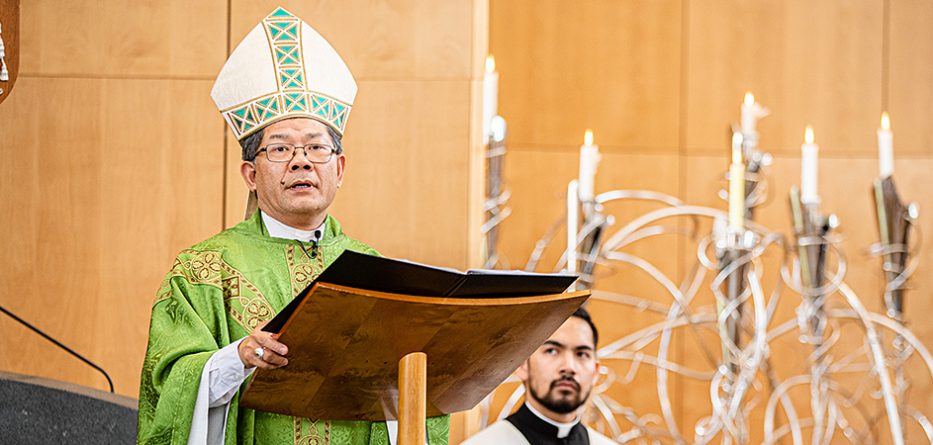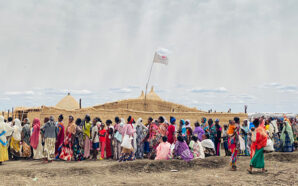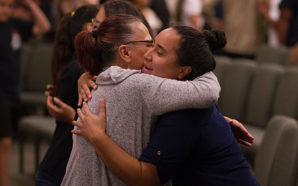Most Reverend Vincent Long Van Nguyen OFM Conv DD STL, Bishop of Parramatta
Homily for the 19th Sunday in Ordinary Time Year A 2020 at Our Lady of the Rosary Parish, Kellyville
Readings: 1 Kings 19:11-13; Romans 9:1-5; Matthew 14:22-33
9 August 2020
Strength in weakness: Embracing the vulnerable trust of Jesus
Dear friends,
We live in a world where strength is often measured in terms of huge forces, big numbers, the power to dominate others etc. Joseph Stalin was once cautioned by Winston Churchill to give weight to the Pope’s opinion in world affairs. The communist leader was at the height of his power. So he sarcastically asked how many divisions the Pope had. Little did he realise that it was not the commander of the Red Army who had the last laugh. For a few decades afterwards, the unthinkable happened: the mighty Soviet Empire collapsed unto itself, thanks in no small part to the moral leadership of the Pope.
The Word of God on this Sunday challenges the worldly notion of greatness. It teaches us that God reveals himself to us in powerlessness and invites us to a new way of living and relating. We must be prepared to let go of our desire to be in control and accept the way of God with humility and courage.
In the first reading, we heard the story of the prophet Elijah and his transforming experience on Mount Horeb. Elijah took refuge in a mountain cave because he had been pursued by his enemy. He was in a state of crisis, physically, mentally and spiritually. Hungry, exhausted and disillusioned, he wanted to die. This was a reversal of fortune, because only a few days before, Elijah had had the upper hand. He had single-handedly executed 450 of the false prophets of Baal. Not a very nice man to be crossed, indeed!
But crisis can be the catalyst for change. On the mountain, Elijah was shown in a dramatic fashion how God manifested himself not in an earthquake, or storm or fire but in a gentle breeze. In other words, divine strength was not in violent force but in gentleness. For someone who was accustomed to masculine power: muscle, the sword, the gun, etc. a dose of feminine power must have been a humbling experience. St Mary of the Cross MacKillop embodied this strength in her struggle with her bishop and we know who came out second best. We can do well to imitate her in seeking inner strength by aligning ourselves to the heart and mind of God.
The Gospel story also presents us with a lesson of strength not in short-lived bravado but in vulnerable trust. It tells of the unexpected storm and how the disciples came to recognise Jesus. Initially, they took fright and thought they had seen a ghost floating on the waters. Upon hearing the bidding of Jesus, Peter jumped off the boat and walked towards Him. But his heroism was superficial. It was not unlike his enlightened understanding of Jesus at Caesarea Philippi. There, he professed Jesus to be the Christ at one moment and distorted that profession the next when he tried to talk Jesus out of the cross.
Peter was taught an important lesson on the Lake of Galilee. It was not physical strength, alpha-male bravado and capability so prevalent in a society that was based on the notion of the survival of the fittest. Rather, what enabled Peter to sustain his journey to Christ was the strength of faith, trust and surrender. It was the strength in gentleness and vulnerability that would see him through. He and his fellow disciples must unlearn the entrenched notion of power to dominate. Instead, they must follow Jesus in His way of trusting in God and acting in complete powerlessness.
Dear friends in Christ,
This weekend, we honour our own St Mary of the Cross, one who exemplified the subversive way of Jesus. Mary showed us even from those humble beginnings that it was their faith, not the size of their numbers, not the strength of their resources, not the popularity of their cause that determined the outcome of their mission. She exemplified the best of the Christian spirit by seeing the face of Christ in the downtrodden and championed their cause with selflessness and courage. There was something quintessentially Australian about the way she endeavoured to give a fair go for the underprivileged. It was not simply doing charity to the poor out of a sense of pity and sympathy. Rather it was Mary’s profound respect for their dignity and her commitment to the reign of justice. For this, she lived her life with passion and compassion: passion for justice and compassion for the victims of injustice. She embodied strength not through power and wealth but through gentleness and love.
May we be strengthened by the Eucharist to walk the journey of faith and we may be leaven to the Kingdom through our active discipleship, witness and engagement in the world. May Mary of the Cross inspire and guide us to follow not the way of the world but the gentle, self-emptying way of Christ.








